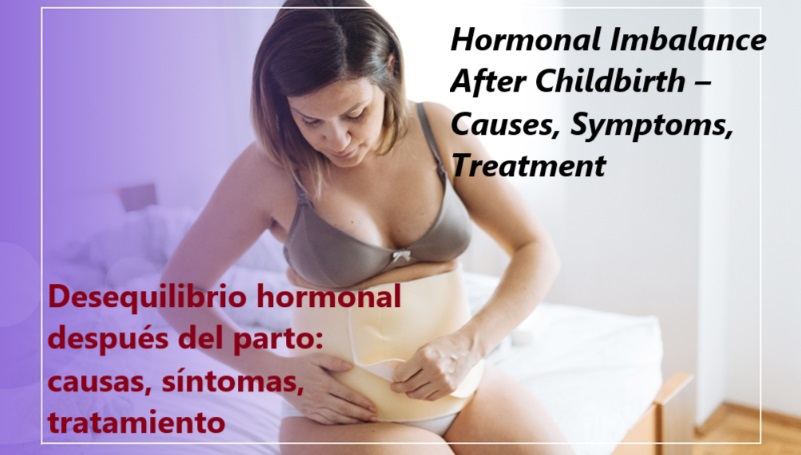Pregnancy and childbirth are natural processes in a woman’s life but can be a significant challenge for the body. During the 9 months of pregnancy, all organs and systems undergo a transformation to support the baby’s life. This includes substantial changes in hormonal levels.
According to medical professionals, the hormonal balance should gradually return to normal after childbirth. However, in practice, hormonal imbalance is often diagnosed in women several months postpartum. Various factors can hinder the body’s ability to restore its previous state.
Causes of Hormonal Imbalance After Childbirth
Childbirth itself disrupts the hormonal balance. Factors that can delay recovery include:
- Prolonged or complicated labor,
- Lack of breast milk,
- Illnesses in the first months postpartum,
- Stress and emotional strain,
- Use of strong medications (including hormonal contraceptives),
- Poor nutrition or extreme dieting,
- Excessive alcohol consumption and smoking.
Postpartum recovery is challenging, and the body often needs support from the mother. If a woman returns too quickly to her previous lifestyle (resuming smoking, ceasing breastfeeding, or starting work immediately), the hormonal system struggles to adjust. Conversely, overexertion from dedicating excessive energy to the newborn without proper rest and nutrition can also hinder recovery.
Symptoms of Hormonal Imbalance
Key symptoms to watch for 3-4 months postpartum include:
- Mood swings emotional instability,
- Nervousness, irritability or crying spells,
- Feelings of guilt or pessimism,
- Depression,
- Issues with breastfeeding,
- Hair loss,
- Significant weight changes,
- Painful menstruation,
- Skin issues such as acne or pigmentation,
- Decreased libido or discomfort during intercourse.
Persistent postpartum depression may indicate a hormonal imbalance, particularly between estrogen and progesterone. Untreated, this condition can impact both physical health and emotional well-being.
Treatment of Hormonal Imbalance
A general practitioner or gynecologist will recommend urine and blood tests to identify the specific hormonal deficiencies. Treatment involves addressing the root causes, such as discontinuing harmful medications or adopting stress management strategies. Medical therapies may include medications like Cyclodynon or herbal supplements, but they must be prescribed by a doctor based on individual needs.
Home Remedies:
- Sage: To boost estrogen, drink sage tea during days 6-15 of the menstrual cycle.
- Potentilla: For progesterone, consume a potentilla infusion during days 16-25 of the cycle.
- Oregano: Supports hormonal regulation.
- Hops: Acts as a phytoestrogen.
Professional medical guidance is essential for safe and effective treatment.






